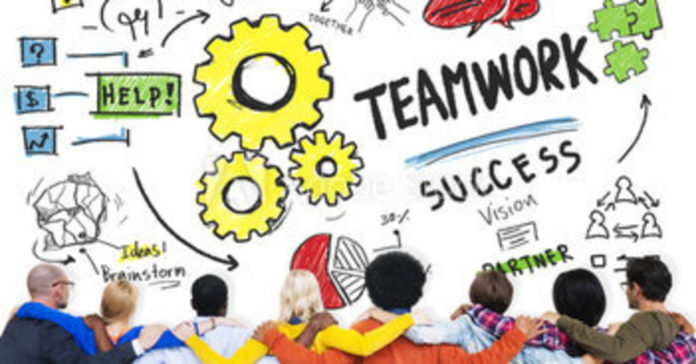If you’re a one-person business, then teamwork doesn’t come into the equation. However, for all other types of business, collaboration is vital. If it’s effective, it can accomplish far more than an individual can on their own. When employees work well together, it builds workplace morale and makes workers more productive. A diverse team of people working together is able to come up with great new ideas, but other benefits of teamwork include:
- Helps solve problems
- Exchanging ideas
- Colleagues are supportive of each other
- Strong sense of belonging
- A deep commitment to each other and the common goal
Teamwork isn’t something that just happens, however. It takes hard work and commitment. With that in mind, here are some suggestions if you’d like your team to be more in sync.
- Encourage Informal Social Events
You often find formal team-building events recommended in many HR manuals but forcing people to participate in such activities can sometimes have the opposite effect. A far more effective way forward is to encourage employees to get together socially. When in low-pressure, informal surroundings, team members have the opportunity to get to know each other and form strong bonds.
- Team-Building Events
There is still a place for team-building events as long as they’re organised correctly. The activities arranged should be fun and entertaining in the first place but also give participants a chance to see each other in a different light. As well as building skills like communication, planning, problem-solving and conflict resolution, they also help build the workplace spirit.
- Make Roles Clear
Teamwork is an impossible goal if roles are uncertain. Roles and responsibilities have to be clearly documented, and that documentation has to be available for everyone to see. When a new employee starts, they should be given the document to read as part of the recruitment process.
- Rally to a Common Goal
To be successful, a team needs to have a common goal. Without a set of clearly defined, measurable goals for an organisation, it’s difficult to keep everyone on the same page. When everyone is clear on the long-term goals, individual teams will be able to set their own goals to help meet them.
- Excellent Teamwork Must be Rewarded
Camaraderie can be encouraged in the workplace with a system of recognition for employee achievements. Examples of excellent teamwork should always be praised. Make an employee feel appreciated by recognising the extra work and effort they’ve put in. Collaboration automatically improves when people are rewarded for helping each other. It doesn’t require grand gestures. Recognition can come in the form of a thank you from a manager or a mention in the company’s internal newsletter of a job well done.
- Build a Culture of Trust, Respect and Honesty
Sounds rather grand, but it’s actually easy to do! Micro-managing your employees means you’re not giving them the respect they deserve. You don’t need to treat them like children, and they should be allowed to work unsupervised. Your employees will be more inclined to work hard if they haven’t got someone breathing down their neck. It does mean, however, that you have to specify goals, set deadlines and provide your employees with the tools to perform their jobs.
Teamwork isn’t something that you can force. It can, however, occur naturally when the workplace culture is healthy.







